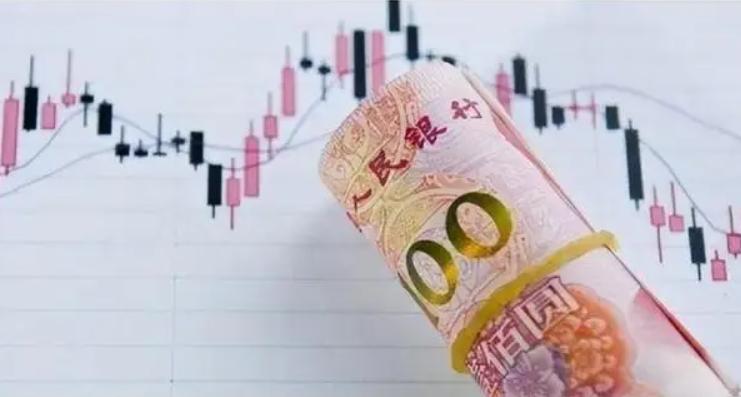
Recently, the Federal Reserve officially announced the start of interest rate cuts, the rate reached 50 basis points, and plans to reduce the cumulative 50 basis points this year, which means that the era of dollar tightening has become a thing of the past. This is not only the Fed's first interest rate cut after four years, but also a very large rate cut. After the announcement of the policy of cutting interest rates, the recent RMB exchange rate quickly broke "7"! The exchange rate move came as a bit of a surprise.
In fact, the exchange rate changes not only affect us ordinary consumers, but also affect the country's economic direction. The first is the impact of import and export costs and competitiveness. Due to the appreciation of RMB, these enterprises can save more RMB when exchanging foreign exchange, thus reducing production costs. That means the yuan is rising relative to the dollar, and the same amount of yuan can be exchanged for more dollars, lowering the cost of imported raw materials, energy and goods. For enterprises that rely on imports, this will help reduce production costs and improve profitability. After the appreciation of the RMB, the price of imported goods is relatively lower, and domestic consumers can buy the same amount of imported goods with less money, thus improving consumers' purchasing power and living standards. The appreciation of the yuan makes Chinese assets more attractive, and foreign capital is more willing to flow into the Chinese market to obtain higher investment returns. This will help increase the supply of capital to the domestic market and promote economic development. At the same time, for companies and governments with foreign debt, a stronger yuan means that fewer yuan can be used to repay the same amount of dollar debt, thus reducing the pressure on foreign debt. In addition, the trend of the RMB exchange rate reflects the steady growth of China's economy and the robustness of its monetary policy, which helps to enhance China's international image and status.
The second is the impact on the market and consumers. Changes in the RMB exchange rate often cause fluctuations in the financial market. On the one hand, the appreciation of the yuan may attract foreign capital into China's stock, bond and other financial markets. On the other hand, it may also cause some investors to worry and panic about the appreciation of the renminbi, leading to increased market volatility. Therefore, investors need to pay close attention to exchange rate movements and financial market dynamics, and do a good job of risk management. A stronger yuan could attract foreign capital into the Chinese market for higher returns. However, changes in market expectations or adverse factors in the international environment may also trigger capital outflows. Therefore, the government needs to take measures to stabilize market expectations and financial market order to prevent the risk of capital outflow. At the same time, the appreciation of the yuan also means that the cost of overseas travel and study is correspondingly lower, which can reduce the financial burden of families. The reduction in consumption costs for Chinese tourists when traveling overseas is good news for individuals and families planning to travel or study abroad, which will encourage more Chinese consumers to choose outbound travel, while also enjoying a more affordable overseas travel experience.
With the rise of cross-border e-commerce, more and more consumers choose to buy overseas goods through e-commerce platforms. A stronger yuan would make the prices of these goods more competitive and attract more consumers to make cross-border purchases. The appreciation of the yuan may also promote the development and popularization of cross-border payment technology, making it more convenient and secure for consumers to pay when shopping across borders. The appreciation of the RMB may enhance consumers' confidence in currency holding and consumption, and enhance the activity of the overall consumer market. Some consumers may invest their funds in financial products or markets related to the RMB exchange rate to obtain higher returns. However, this also requires consumers to have a certain degree of financial knowledge and risk awareness.
In summary, the impact of the rapid appreciation of the RMB is complex and multi-faceted. The government and relevant departments need to pay close attention to market dynamics and changes in the economic situation, and take appropriate policy measures to cope with possible risks and challenges. At the same time, enterprises also need to actively adjust their business strategies to cope with the impact of exchange rate fluctuations. We need to keep a rational and objective attitude to look at this phenomenon and take appropriate measures to deal with the challenges and opportunities it may bring.

报告显示,中国电力投资加速增长,预计2024年电网基建投资将超过5300亿元。
近日,市场迎来了一则引人注目的消息:工业巨头3M公司(MMM.N)在本周五公布了其季度业绩报告,随后股价飙升至近两年来的
最近,外媒给OpenAI算了笔账,今年可能要血亏50亿美元。
近日,巴黎奥运会和世界铁人三项协会联合发布了一项重大决定,宣布因塞纳河水质污染问题,原定于近期进行的奥运会铁人三项首次下
当地时间7月18日,法国巴黎发生了一起令人震惊的持刀袭警事件。
近期,一则重大消息在国际舞台上引起轩然大波,马来西亚宣布加入金砖国家。
调查发现,互联网和智能手机的使用干扰了韩国近五分之一学生的生活。